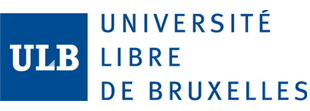Training Unemployed Workers to Fill Understaffed Jobs: An Experimental Study on Information Barriers and Employment Effects
editLeduc, E. & Tojerow, I.
Convention de recherche avec le FOREM & l’IWEPS, 2020-2023
In most developed countries a large number of unemployed individuals coexist along numerous job postings for which no appropriate candidate can be found. Such jobs are typically referred to as shortage or bottleneck occupations – i.e., jobs that employers find particularly difficult to fill. One way of addressing this labour market mismatch would be to train jobseekers in the particular occupations that face a high unmet demand, thus tackling both skills shortages and unemployment at the same time. Yet, there appears to be little research on how jobseekers could help in solving occupational shortages. In this research project, we (i) study the role of information frictions in understanding why jobseekers do not fill bottleneck professions and (ii) estimate the effect of participating in trainings related to shortage occupations on subsequent individual labour market outcomes. We do so by implementing a randomized experiment that consists in nudging a randomly selected group of jobseekers into entering shortage occupations, either directly, or after participating in training opportunities offered by the Walloon Public Employment Service.


